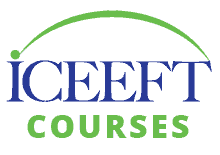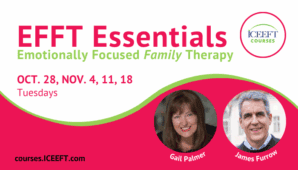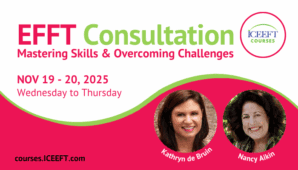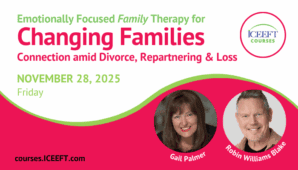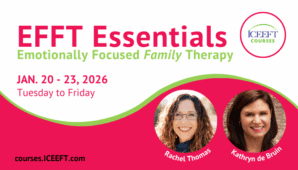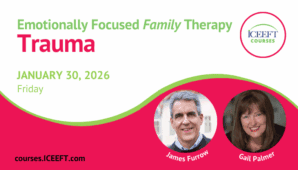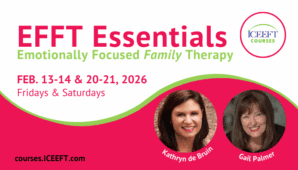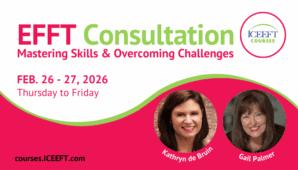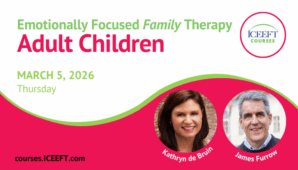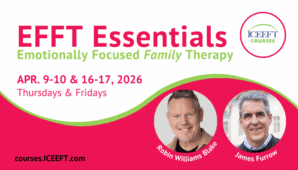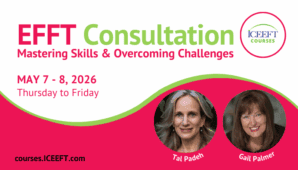Learn EFFT: Emotionally Focused Family Therapy
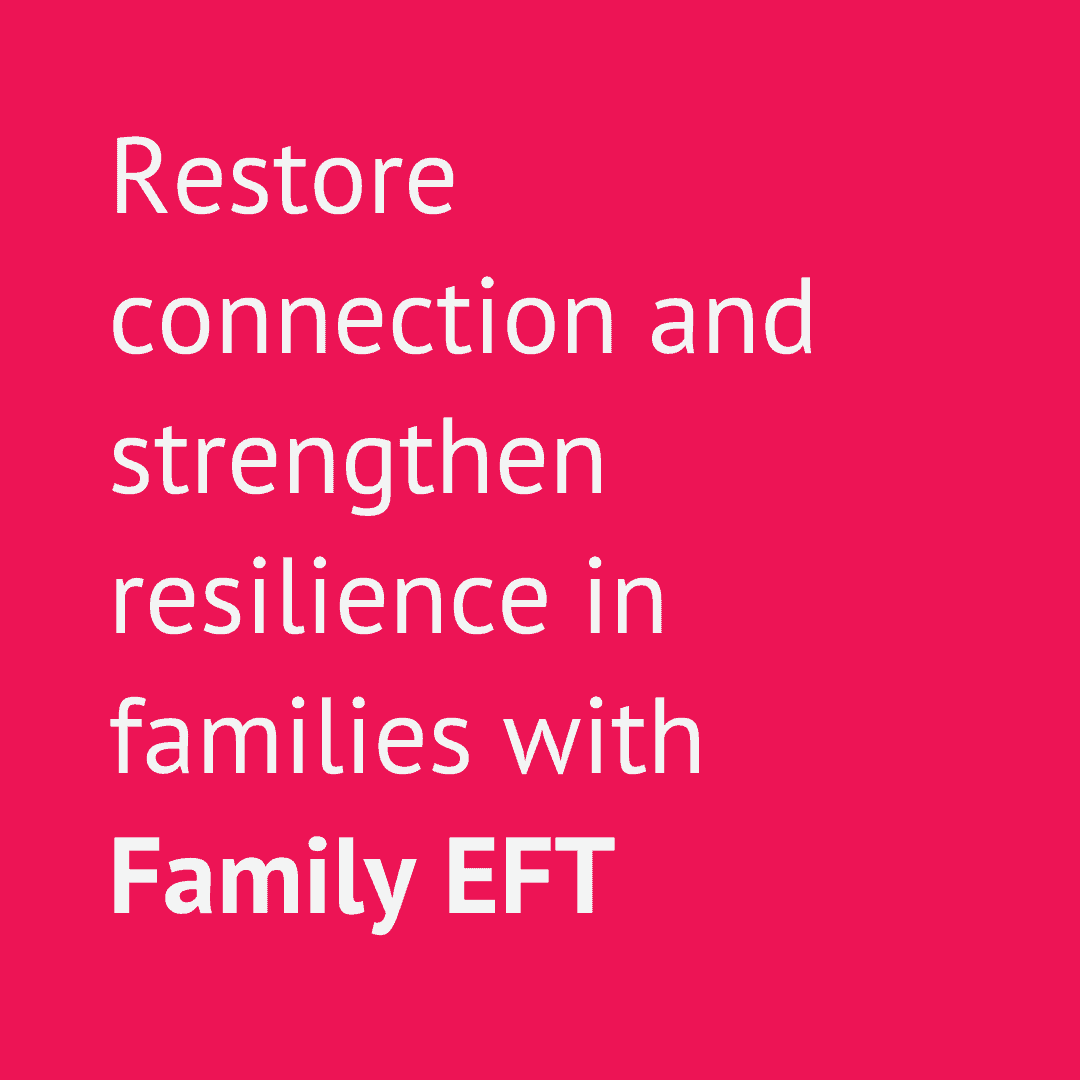
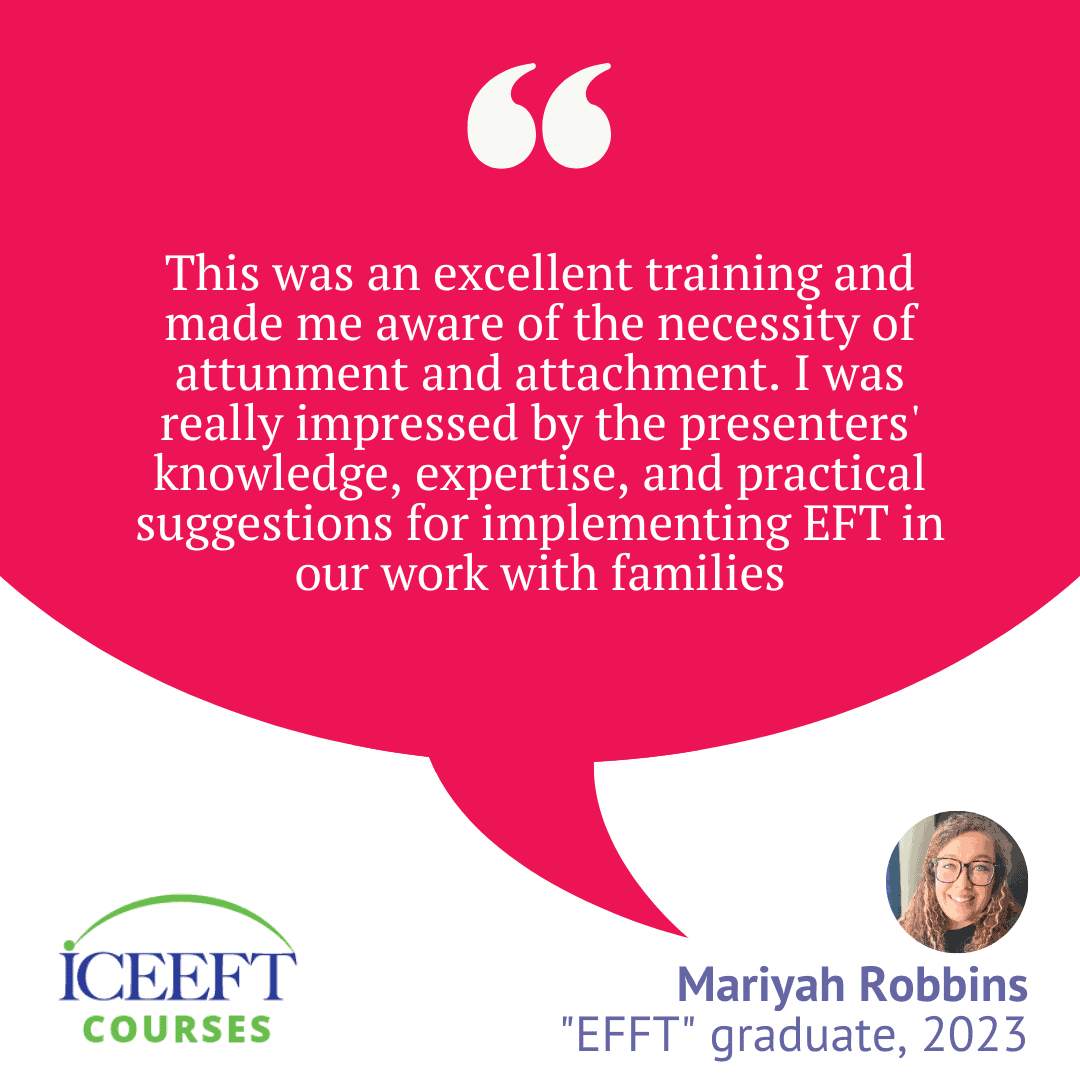
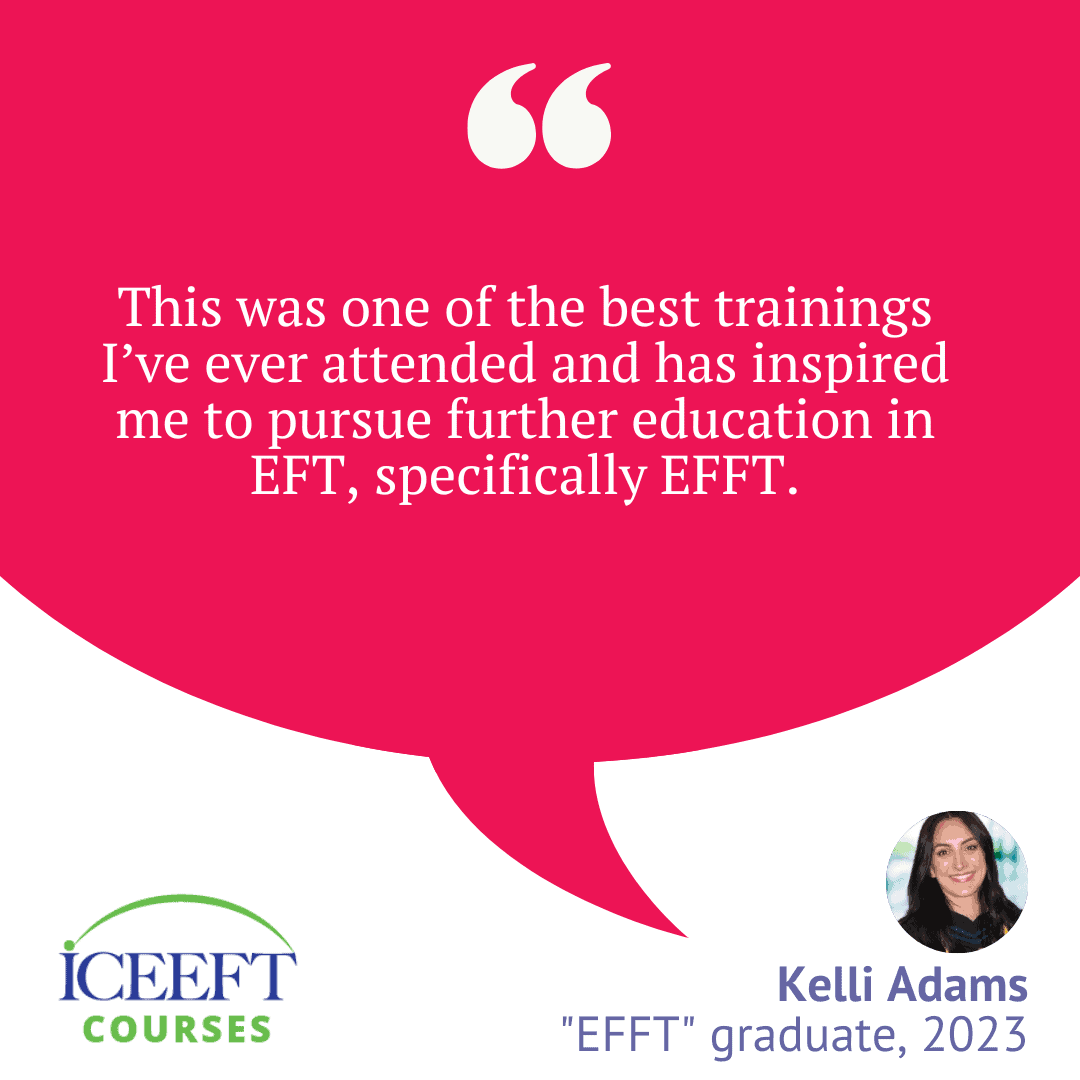
What is EFFT?
Emotionally Focused Family Therapy (EFFT) extends the principles of Emotionally Focused Therapy to mend and fortify familial bonds. The core objective is to cultivate secure family patterns, where attachment, caregiving responses, and emotional bonds are effective. EFFT centralizes on stabilizing negative interaction patterns, restructuring parent-child interactions, and consolidating the felt security through new connection patterns. Following attachment science, it guides families to experience swift progress as members become more responsive and engaged, uncovering and addressing previously unrecognized attachment-related emotions and needs, thus fostering individual growth and intergenerational relationship enhancement.
Which modality is right for me?
EFFT is the most appropriate modality for working one-on-one with children and youth, as well as with caregivers and their children (including adult children). EFCT is most effective for working with couples. EFIT is most effective for working one-on-one with adults.
Features of learning with ICEEFT Courses
ICEEFT Courses offers online trainings, in English, in North America. For EFFT training elsewhere in the world, in other languages, or in-person within North America, please visit the ICEEFT Event List.
- All our courses offer CEs; learn more on our CE page.
- All our live-online courses include a 40min lunch + two 10min breaks each day.
- A certificate of completion is available for all our courses.
Pathway to EFFT Certification
ICEEFT created a certification pathway for EFFT in 2024. To learn more about each step of EFFT certification, please visit ICEEFT.com’s EFFT page.

Courses in Emotionally Focused Family Therapy
Mental health professionals have a range of training options for Emotionally Focused Family Therapy.
Introducing “Fundamentals of EFT”
Engage with the essence of Emotionally Focused Therapy (EFT) and attachment science; this 6.25-hour workshop provides practical tools to enhance your therapeutic practice across individual, couple, and family modalities. Learn more about Fundamentals
Prerequisites: none. We recommend Fundamentals precede any other course. This is not a requirement; this course is not required for therapist certification. Fundamentals can also be taken after other courses, as it provides context for EFCT, EFIT, and EFFT.
Introducing EFFT short courses
EFFT short courses can be taken as a first taste of EFFT, or can be enjoyed after taking other EFFT training. The following EFFT short courses are approved parts of the path to EFFT Certification.
Prerequisites: none. One day short courses may be taken at any time: as a first introduction to EFFT or as one of the Additional Steps required for EFFT certification.
Interested in a future date for this course?
If this date doesn’t work for you and you’d like to be notified when the next one is scheduled, please submit your details here:
Introducing “EFFT Essentials”
An EFFT Essentials course is the introductory 24-hour training in Emotionally Focused Family Therapy (EFFT). This workshop equips therapists with the tools to navigate and mend familial emotional landscapes, fostering the restoration of family bonds. Participants will delve into attachment frameworks and experiential realms, explore emotion regulation, and learn practical EFFT steps to facilitate corrective emotional experiences. Completion of EFFT Essentials provides therapists with the tools to drive lasting positive change in the family dynamics of their clients.
Prerequisites: none. EFFT Essentials is a 4-day course, equivalent to taking both EFFT Level 1 and EFFT Level 2. The Levels courses were replaced with Essentials in 2024.
Participants will learn to:
- Understand the empirical support for EFFT.
- Outline the phases of EFFT treatment and key change events.
- Apply key interventions in EFFT through role-play.
- Identify markers and interventions for processing both adaptive and maladaptive emotions within family dynamics.
- Formulate cases using an attachment-based EFFT model.
- Work with emotional regulation strategies within a family context.
- Access and process emotional experience to facilitate transformative change within families.
- Develop a working alliance based on an attachment bond with each family member.
- Utilize the therapist’s relational presence within the family system.
- Develop a treatment plan and guide interventions using EFFT, based on markers and clinically relevant assessment.
- Access emotion to develop corrective emotional experiences that restructure maladaptive emotion schemes within family interactions.
- Work with and resolve fears and blocks to emotional engagement and processing within family dynamics.
Introducing “EFFT Consultation”
Also known as “Mastering Skills and Overcoming Challenges in EFFT: A Consultation Process”
Advance your practice and improve your client outcomes by taking your EFFT skills to the next level! In this two-part course, you will learn from expert trainers as they show and talk about their therapy sessions – where they get stuck, how they get unstuck, and how the attachment map and EFT Tango provide a beacon for the family therapist.
Next, join as colleagues show their work. Watch expert trainers help guide the therapy process through feedback, consultation, and role plays specifically aimed at framing clients’ problems through the lens of attachment, mapping the process, maintaining momentum, unblocking barriers to caregiving, and more!
Prerequisites: completion of EFFT Essentials (or EFFT Level 1 and EFFT Level 2).
Participants will learn to:
- How to create safety and structure in the EFFT process through conceptualization and organizing ongoing treatment.
- Ways of creating and maintaining a robust therapeutic alliance.
- Methods for tracking and identifying key inner and family patterns that block caregiving, connection, and progress in therapy.
- How the EFFT therapist uses key interventions to first validate and then dissolve relational blocks.
- How to focus therapist presence to promote parental and child engagement in the EFFT process.
- A proven set of interventions that you can rely on to shift family behaviours towards greater emotional balance in support of parental responsiveness and child vulnerability.
- Greater mastery of core EFFT interventions and how to use EFT skills to overcome in session challenges and gain therapists’ confidence in guiding families to greater resilience.
- A more nuanced understanding of the EFT Tango through stages of change in EFFT.
- Key methods and interventions that will lead your clients into secure attachment, resourcing families towards ongoing growth and meeting challenges over the life span.
- Increasing the greater confidence and competence of the therapist to lead the EFFT process of change.
Participants will learn from expert trainers as they share and discuss their work. Key points considered include:
- Maintaining a robust alliance
- Finding and keeping focus in session
- Identifying relational patterns that block family distress
- Deepening engagement in the face of relational blocks to caregiving and care seeking
- Working with blocks at leading edge of experience
- Assembling, befriending, and ordering emotion
- Maintaining focus, depth, and momentum with complex family presentations
- Shaping corrective experiences around attachment related needs
Six cases are presented. Expert trainers provide feedback and consultation, and engage in role plays with each other and/or consultees for the purposes of demonstrating the EFFT model as specifically applied to the case discussed and presenting issue(s).
Live-online events add additional time for attendee engagement; prerecorded events do not.
Ready to start learning EFFT?
View the EFFT training we are offering next. Click through to register today!
ICEEFT Courses offers online trainings, in English, in North America. For EFFT training elsewhere in the world, in other languages, or in-person within North America, please visit the ICEEFT Event List.
2025 Oct-Nov | EFFT Essentials Sale has ended
2025 Nov | EFFT Consultation Sale has ended
Membership Promotion
Complete an EFFT Essentials and gain your first year of ICEEFT Membership free. Learn about the benefits of membership.
“Membership in ICEEFT offers a supportive platform to learn, improve my skills using EFT, connect with different EFT communities around the world, and allows potential clients to find me.”
Aaron Oog, MCounsPrac., MFT
Joining ICEEFT has helped me personally and professionally. I have benefitted from growing my practice, learning more about stuck spots, and even improved my marriage. What a gift.
Dr. Dianna Troutt, LMFT, LPCC
Readings
Discounts
Each publisher offers Courses attendees a discount of 15-25% off the following texts. Once you have registered for a course, you may access the relevant discount codes via the Courses Portal.
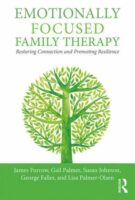
Required for EFFT Essentials
Recommended for all other EFFT courses
“Emotionally Focused Family Therapy: Restoring Connection and Promoting Resilience” by James L. Furrow, Gail Palmer, Susan M. Johnson, George Faller, Lisa Palmer-Olsen, 2019.
Routledge offers this publication in paperback, hardcover or eBook.
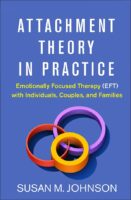
Recommended
“Attachment Theory in Practice: Emotionally Focused Therapy (EFT) with Individuals, Couples, and Families” by Dr. Susan M. Johnson, 2019.
Guilford Press offers this publication in hardcover or eBook.
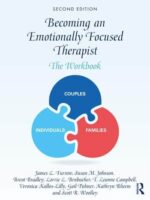
Recommended
“Becoming an Emotionally Focused Therapist: The Workbook (2nd Edition)” by James L. Furrow, Susan M. Johnson, Brent Bradley, Lorrie L. Brubacher, T. Leanne Campbell, Veronica Kallos-Lilly, Gail Palmer, Kathryn Rheem, Scott R. Woolley, 2022.
Routledge offers this publication in paperback, hardcover or eBook.
If you'd like to stay connected please
